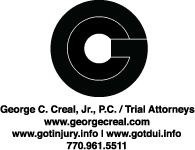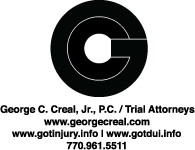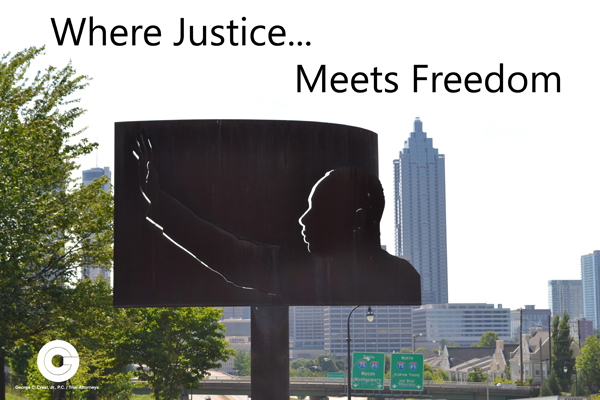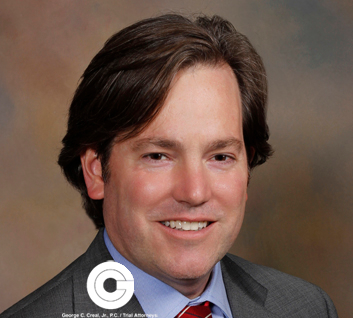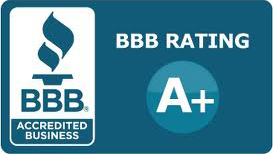Hunker down! #godawgs
Scoooooore!
Getting pumped. #rainorshine #godawgs
Please contact your representative to support the MORE Act (https://www.congress.gov/bill/116th-congress/senate-bill/2227) to de-schedule Marijuana as a controlled substance under Federal law. The vote was scheduled for next week but has been rescheduled until November. Marijuana prohibition has not worked, has enriched criminals, endangered those who do smoke through lack of regulation and oversight of marijuana sold and most importantly has poisoned the hearts and minds of a generation against law enforcement authority and the rule of law as well as unnecessarily incarcerated many of them.
This bill decriminalizes marijuana.
Specifically, it removes marijuana from the list of scheduled substances under the Controlled Substances Act and eliminates criminal penalties for an individual who manufactures, distributes, or possesses marijuana.
The bill also makes other changes, including the following:
replaces statutory references to marijuana and marihuana with cannabis,
requires the Bureau of Labor Statistics to regularly publish demographic data on cannabis business owners and employees,
establishes a trust fund to support various programs and services for individuals and businesses in communities impacted by the war on drugs,
imposes a 5% tax on cannabis products and requires revenues to be deposited into the trust fund,
makes Small Business Administration loans and services available to entities that are cannabis-related legitimate businesses or service providers,
prohibits the denial of federal public benefits to a person on the basis of certain cannabis-related conduct or convictions,
prohibits the denial of benefits and protections under immigration laws on the basis of a cannabis-related event (e.g., conduct or a conviction), and
establishes a process to expunge convictions and conduct sentencing review hearings related to federal cannabis offenses.
Georgia
District Name Party Office Room Phone Committee Assignment
1st Carter, Buddy R 2432 RHOB (202) 225-5831
2nd @sandfordbishop D 2407 RHOB (202) 225-3631
3rd Congressman Drew Ferguson R 1032 LHOB (202) 225-5901
4th Congressman Hank Johnson D 2240 RHOB (202) 225-1605
5th John Lewis- Vacancy D 300 CHOB (202) 225-3801
6th Rep. Lucy McBath D 1513 LHOB (202) 225-4501
7th Representative Rob Woodall R 1724 LHOB (202) 225-4272
8th Rep. Austin Scott R 2417 RHOB (202) 225-6531
9th @RepresentativeDougCollins R 1504 LHOB (202) 225-9893
10th Congressman Jody Hice R 409 CHOB (202) 225-4101
11th Congressman Barry Loudermilk R 422 CHOB (202) 225-2931
12th Congressman Rick Allen R 2400 RHOB (202) 225-2823
or
13th David Scott for Congress D 225 CHOB (202) 225-2939
14th Tom Graves R 2078 RHOB (202) 225-5211
NORML.ORG
Federal: The Marijuana Opportunity, Reinvestment, and Expungement Act - NORML
“The Radley Place jutted into a sharp curve beyond our house. Walking south, one faced its porch...The house was once white ... but had long ago darkened to the color of the slate-gray yard around it.” #tokillamockingbird #30a
“The Radley Place jutted into a sharp curve beyond our house. Walking south, one faced its porch...The house was once white ... but had long ago darkened to the color of the slate-gray yard around it.” #tokillamockingbird #30a
Culture of Incompetence at the Fulton County Jail. Inexcusable. End qualified immunity now! Until public officials are held monetarily accountable the parade of horrors will continue without end. Money talks and BS walks.
LAW.COM
Appeals Court Revives Claims Over Murder of Man in Jail Months After Release Ordered | Daily Report
The three amigos. Pulaski street gang. #goodoledays
Funions. Need I say more
Sunrise swimming pool
Sunrise over the subcontinental divide aka DeKalb Ave. #rosyfingereddawn
Moonshot
Orrin Swift wine tasting. They got the best labels. #dhgc
We are stronger together. Thanks Jeep, we collectively needed a reminder. Many voices. One Love. https://youtu.be/D2XYH-IEvhI
YOUTUBE.COM
Jeep® | The Middle
Short sellers before #Wallstreetbets and after @reddit_wallstreetbets #getshorty #gamestonk $GME
“A civil defendant’s money is protected against unreliable science, but a criminal defendant’s life is not.”
By Mark Loudon-Brown and M. Chris Fabricant | January 27, 2021 at 01:03 PM
In 1982, the Supreme Court of Georgia held, in Harper v. State, that in deciding whether to admit expert scientific evidence, a trial court should ask whether “the procedure or technique in question has reached a scientific stage of verifiable certainty.” This was the law in both civil and criminal courts for the next 23 years, until 2005. With the support of a tort-reform lobby seeking to shield businesses from liability claims rooted in suspect “scientific” evidence, the Legislature passed O.C.G.A. § 24-7-702. This statute essentially incorporated the federal Daubert standard of admissibility, requiring that scientific evidence be based on reliable scientific methods and that such methods be reliably applied in the given case. Reliability thus became the touchstone for the admission of science into civil court.
In criminal court, however, “[p]rosecutors opposed any adoption of Daubert in criminal cases and lawmakers responded by limiting” § 702 to civil cases. Paul S. Milich, Georgia’s New Evidence Code—An Overview, 28 Ga. St. U. L. Rev. 379, 409 (2012). Pursuant to § 24-7-707, in criminal court “the opinions of experts on any question of science, skill, trade, or like questions shall always be admissible.” Where a person’s life is at stake, unreliable “scientific” evidence was and shall always be admissible; where money is the issue, however, the evidence must be proved to be reliably scientific. Georgia can do better.
This 2005 split between criminal and civil codes predated the 2009 National Academy of Sciences report on the validity and reliability of the most commonly used forensic techniques, a watershed publication exposing the problems caused by the admission of unreliable “scientific” evidence in criminal courts. The 2005 split also predated the ever-increasing number of Georgia exonerations, many involving the use of unreliable forensic evidence. Thus, the statute applied in 2006, when Sheila Denton, an indigent Black woman, was convicted of murder and sentenced to life in prison in Waycross, due to the admission of unreliable, “scientific” bite-mark evidence. That very same evidence would have been subjected to a very different standard—indeed it would have been subjected to a standard at all—if this had been a wrongful death suit in a Georgia civil court. The civil standard would have required a showing that the proffered evidence was based in reliable science and was applied in a scientifically reliable way, a standard bite-mark evidence never would have passed. In February 2020, Ms. Denton was granted a new trial and released from prison.
Is the Denton case an isolated example? The data (on file with authors) suggest not. An analysis of every reported criminal court opinion since the 2005 civil/criminal split indicates that no indigent person of color has ever successfully prevented proffered scientific evidence from being used to convict. Meanwhile, approximately 44% of civil defendants in reported decisions have successfully prevented unreliable scientific evidence from being admitted against them. While civil defendants won challenges almost half of the time, over in criminal court defendants nearly always lost similar challenges. This criminal-civil inequality is a phenomenon unique to Georgia. No other state has this kind of disparity in evidentiary standards between criminal and civil court.
According to the National Registry of Exonerations, there have been at least 39 documented exonerations in Georgia over the past three decades. At least 25 of those wrongful convictions were due, at least in part, to faulty forensic science evidence. Georgia’s criminal evidence code enables these miscarriages of justice. Faulty hair microscopy evidence—which could not withstand a fair application of the Daubert standard—was used at the trials of Gary Nelson and John White, both of whom were wrongly convicted and later exonerated. Expert testimony based on unreliable methods of interpreting DNA mixtures led to Kerry Robinson’s wrongful conviction, who was exonerated in 2019. Subjective speculation presented as “scientific” evidence regarding fires alleged to have been deliberately set—which would also flunk Daubert—wrongfully convicted Sheila Bryan, who has been exonerated. Dogs that were purportedly experts at smelling the presence of accelerants helped wrongfully convict Weldon Carr of the arson-murder of his wife. Erroneous crime scene reconstruction testimony helped convict Jennifer Weathington and James Williams, both of whom have been exonerated.
Notwithstanding these many (preventable) wrongful convictions based on faulty forensic science, Georgia trial courts, applying the criminal statute, continue to admit unreliable forensic science evidence. It was “[s]tate dependent memory flashback syndrome” in Glidewell v. State, 279 Ga. App. 114 (2006); dog scent tracking and fire science in Bass v. State, 288 Ga. App. 690 (2007); and pattern match analysis in Sharp v. State, 286 Ga. 799 (2010), and Jefferson v. State, 312 Ga. App. 842 (2011).
It is time for a change. Science is science. It’s either admissible evidence or it’s not. And if there is any argument for dichotomist standards, surely the standard should be more stringent, not less, when life and liberty are at stake in criminal court. The lack of a reliability test—indeed the lack of any substantive admissibility standard at all—in criminal cases allows and will continue to allow unreliable expert testimony to be admitted against innocent criminal defendants, thereby creating more wrongful convictions.
Georgia’s statutory scheme allows the prosecution to admit unreliable forensic science evidence, the same unreliable forensic evidence that has led to proven wrongful convictions. Thus, poor people of color in Georgia are unprotected from faulty forensic science evidence in criminal courts. But in civil court, where money is a stake, a higher evidentiary standard applies, and thus the defense can successfully exclude junk science, as the data demonstrates. A civil defendant’s money is protected against unreliable science, but a criminal defendant’s life is not. This practice is not just wrong, it is uniquely wrong—as no other state permits this type of bifurcated justice. It is time Georgia join the rest of the country and demand that expert testimony used against a criminal defendant be—at the very least—reliable. Read the article: https://www.law.com/dailyreportonline/2021/01/27/georgia-can-do-better-than-offer-uniquely-unequal-expert-evidence-standards/
Cherish your friends but value your foes. Your foes keep you studying the blade. Happy New Year.
Why do you need a gritty lawyer? Not because he is dirty but because he never quits.
